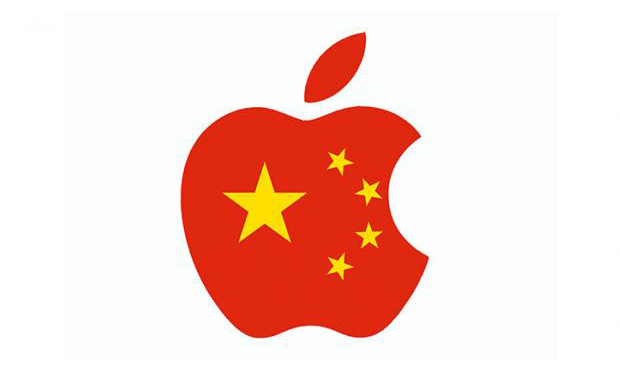Apple fights ruling to ban iPhone 6 sales in China
Cupertino’s campaign to woo crucial Asian market could be setback

Apple is fighting a ruling that could potentially see its iPhone 6 and 6 Plus banned in China.
The Chinese intellectual property office ruled that Apple and its Chinese distributor and retailer, Zhongfu Telecom, infringed the patent of Baili Electronics, which is suing Apple over the exterior design of its 100C smartphone, Forbes reports.
In the ruling, the Chinese intellectual property office stated: "Apple's iPhone 6 and iPhone 6 Plus have minor differences from Baili's 100C. The differences are so tiny that the average customer could not notice. So, this case falls into the patent rights protection category."
Apple has reportedly appealed against the ruling in the Beijing Intellectual Property Court.
IT Pro has contacted Apple for comment on the situation, but at the time of writing had not received a reply.
The prospect of a ban in China comes as smartphone sales in western countries have reached saturation point, and sales of iPhones have seen a decline for the first time.
Apple has placed a lot of attention on China in the last six months in an attempt to woo the nation's consumers, and expand its market.
Get the ITPro daily newsletter
Sign up today and you will receive a free copy of our Future Focus 2025 report - the leading guidance on AI, cybersecurity and other IT challenges as per 700+ senior executives
It has invested $1 billion in Uber's Chinese equivalent, Didi Chuxing, and integrated popular Chinese social networking services, such as WeChat and Weibo. Apple CEO Tim Cook also visited Beijing in May to meet with Chinese start-ups, and praised the government's policies on fostering innovation.
The company has also made special adaptations to its own suite of apps and services for the Chinese market, including adding Chinese instruments to GarageBand earlier this year, and, during their WWDC press briefing, announcing that the iOS 10 keyboard will have native support for Chinese characters.
Even as the Cupertino company has attempted to navigate the country's strict stance on western business, it has already faced troubles. In April, the China authorities blocked Apple's iBooks and iTunes Movies stores as part of a ruling preventing citizens from accessing overseas media.
-
 Cleo attack victim list grows as Hertz confirms customer data stolen
Cleo attack victim list grows as Hertz confirms customer data stolenNews Hertz has confirmed it suffered a data breach as a result of the Cleo zero-day vulnerability in late 2024, with the car rental giant warning that customer data was stolen.
By Ross Kelly
-
 Lateral moves in tech: Why leaders should support employee mobility
Lateral moves in tech: Why leaders should support employee mobilityIn-depth Encouraging staff to switch roles can have long-term benefits for skills in the tech sector
By Keri Allan